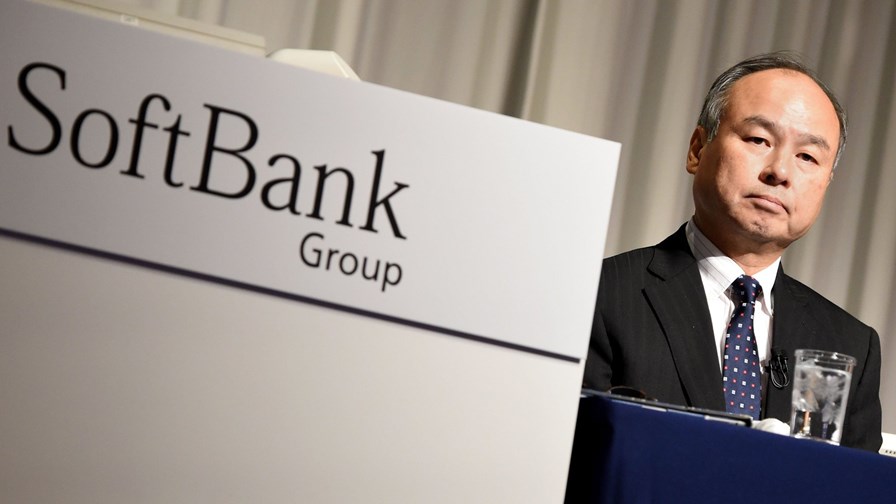The Ressurection Man: Masayoshi Son pulls Softbank back from the brink

By Martyn Warwick
Aug 12, 2020

- In April Softbank seemed to be in terminal decline
- By July it had bounced back
- Sold assets to spend $23 billion on share buy-backs
- From US$9 billion loss to $12 billion profit in one reporting quarter
At the end of March this year, as the coronavirus pandemic was knocking the world back on its heels, Softbank of Japan shocked an already teetering stock market when it reported a US$9 billion loss as at the close of its financial year on the 31st of that month. It was the worst result in the company's history and looked as though it might prove terminal. The conglomerate was in dire straits after recording huge investment losses in the wake of the WeWork debacle and a loss of $17 billion at its much-vaunted $100 billion technology-focused Vision Fund, the biggest on Earth.
Then, yesterday, in Japan, it was revealed that, within just the one quarter encompassing April through July, Softbank had come back from the almost-dead to post a $11.8 billion net profit. The turnaround is astounding and by far the biggest in Japanese corporate history. Softbank's share price is up 34 per cent so far this financial year.
The resurrection is down to a happy confluence of factors that, together, saved the day for Mr. Son and the company of which he is the founder and CEO. First were the asset sales. Son sold stakes in Alibaba, the enormous Chinese e-commerce company, Softbank's very own mobile telco supplier in Japan and T-Mobile in the US, among others. There are also persistent rumours that he is negotiating the sale of the British chip maker Arm Holdings, which he has often described as being one of his biggest, best and most strategically important assets.
Secondly, although Softbank suffered further as Covid-19 lockdowns and travel restrictions kicked the slats out from what, hitherto, had been copper-bottomed multi-billion investments in companies such as Uber, several other companies in which Softbank had a significant holdings continued with their IPOs and went public successfully and provided excellent returns for the Son conglomerate.
Meanwhile, the share prices of some companies that are doing well during the pandemic and in which Softbank holds stocks continue to rise and rise. However, whether that will continue to be the case when some sort of normality is restored is a moot point.
The Son also rises
Forced on to the back foot by a mess of misfortunes, Masayoshi Son, came back fighting and announced the launch of a second and even bigger Vision Fund but later stopped looking to acquisitions and partnerships and changed his strategy to sell assets, build up a cash cushion and invest "more cautiously".
He was successful and Softbank's share price is now twice as high as it was back in the dark days of March. In the parlance of the pandemic, Sofbank's recovery is definitely 'V-shaped'.
Commenting on Softbank's sudden and remarkable change of fortune. Mr, Son warned that the coronavirus pandemic "continues to cause uncertainty" and added that Softbank would not be issuing a trading forecast “due to numerous uncertainties affecting earnings.” In other words, things are OK for now but there's no guarantee that they'll remain so. Certainly the second iteration of the Vision Fund hasn't hit the heights of the first as investors have steadfastly declined to plough cash into it.
Masayoshi Son has often waxed lyrical about his "300-year-vision" for Softbank and has equally often been comprehensively debunked for such hubris. After all, the company was founded as recently as September 198I and although Mr. Son may have his inner eye focused on legacy and the broad sunlit uplands of the late 23rd Century, the harsh reality of the 21st Century has now shown him that even the biggest companies can be derailed long-term by unforeseen global events and short-term market responses.
Perhaps, henceforth, he will focus on the here-and-now and rather than indulging in fantasies about the far future. Perhaps Softbank will recover permanently and still be around in 300 years time, although the rise and fall of empires and regimes throughout history tell us that it probably won't be. Mind you, Forntum and Mason, the posh grocery shop in London's Piccadilly is still going strong and that opened for business in 1707. So there are precedents.
Email Newsletters
Sign up to receive TelecomTV's top news and videos, plus exclusive subscriber-only content direct to your inbox.
Subscribe